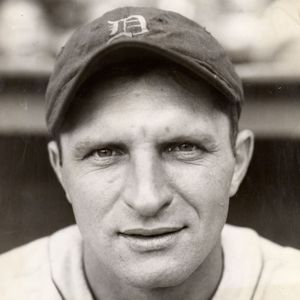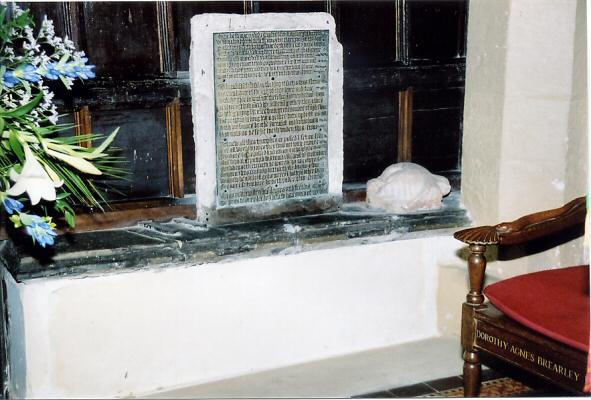Billy Rogell- Springfield Born- Knocked Dizzy Dean Unconscious
Continuing my series on Illinois Born Players-
“Boys of Summer” Series
 William George “Billy” Rogell was born in Springfield, Illinois on November 24, 1904. He played in the Southwestern League for 2 years and ws discovered and signed by the Boston Red Sox in 1925. They liked his bat and convinced him to not be a switch hitter but concentrate on the right side to take advantage of the “Green Monster” at Fenway Park. Rogell was quoted later with “They just screwed me up for a couple of years.”
William George “Billy” Rogell was born in Springfield, Illinois on November 24, 1904. He played in the Southwestern League for 2 years and ws discovered and signed by the Boston Red Sox in 1925. They liked his bat and convinced him to not be a switch hitter but concentrate on the right side to take advantage of the “Green Monster” at Fenway Park. Rogell was quoted later with “They just screwed me up for a couple of years.”
That season, he played in 58 games in which Boston was mired in last place. His average was low as he had 169 at bats with a .195 batting average. He was shipped back to the minor leagues and they recalled him in 1927. That season was better with a .266 average in 82 games. His team lost 100 games for the 3rd year in a row. In 1928, he didn’t do much and was released after the season.
Rogell played 1929 for the St. Paul Saints of the American Association, batting .336 and driving in 90 runs. Following the season, amid offers from a handful of teams, He signed with the Detroit Tigers, where he would spend the next ten seasons.
Here are some previous articles
He struggled out of the gate and the club acquired shortstop Mark Koenig from the Yankees mid-season and plugged him into the lineup. Koenig, the same age as Rogell but already a household name, had been an integral part of the Yankees’ famed Murderers’ Row lineup in 1927 and was still considered by many as one of the premier shortstops in the American League. Rogell finished the year with a .167 average in 54 games, splitting his time between short and third.
Though his start in Detroit was unimpressive, by the time the 1931 season had ended it was clear to the Tigers that they had found their shortstop of the future. Rogell unseated Koenig late in the year and finished the year hitting .303 in 48 games, all at shortstop. Koenig was released after the season ended.
He was the Tigers’ Opening Day shortstop for the 1932 season, a position he would hold for the next eight years. A sure-handed fielder, he and Hall of Fame double-play partner Charlie Gehringer would give the Tigers one of the best keystone-combinations in baseball history. Marv Owen, who would man the left side of the Detroit infield with Rogell for five years, said of Rogell’s fielding prowess, “He’s the only player I ever knew who could catch a bad hop… I don’t know how he did it.”
Rogell’s offense continued to show the promise it had with the St. Paul club. He hit .271 with 29 doubles and 88 runs scored during the ’32 campaign, and improved the following year to .295, 44 doubles, 11 triples, and drew 79 walks to post a .381 on-base percentage while playing in every game. The 1933 season also marked the first time Rogell, Gehringer, Owen, and first baseman Hank Greenberg appeared in the same lineup.
The Tigers, perennial second division finishers, acquired catcher/manager Mickey Cochrane from the Philadelphia A’s during the winter. With him in place, the Tigers entered the 1934 season poised to take the American League by storm. Rogell, leading off in front of four future Hall of Famers (Cochrane, Gehringer, Greenberg, as well as Goose Goslin), had the best season of his career, hitting .296, driving in 100 runs and scoring 114. The infield combined for a major league record 462 runs batted in. The Tigers won the league by seven games and were set to square off against the St. Louis Cardinals in the World Series.
Rogell, unbeknownst to the Cardinals or the media, played the series on a broken ankle. Despite the injury he was able to collect eight hits and drive in four runs over the seven game series. He also found his way into one of the most popular plays in World Series history.
After driving in a run with a single to right in the fourth inning of game four, Spud Davis was replaced by Hall of Famer Dizzy Dean as a pinch runner at first base. Pepper Martin then stepped in and hit a ground ball to Gehringer at second. Gehringer turned and threw to Rogell who forced out Dean at second, and then fired the ball squarely into Dean’s forehead on the relay throw to first. The ball ricocheted off Dean’s head and landed over a hundred feet away in the outfield. Dean, always known for his quick wit and humorous nature, remarked after a visit to the hospital, “The doctors X-rayed my head and found nothing.” Rogell would say of the play later, “If I’d have known his head was there, I would have thrown the ball harder.”
World Series Champion[edit]
After losing in seven games to the Cardinals, the Tigers returned to the series the following season. Again led by their stellar infield, the Tigers won the pennant by three games over the Yankees and earned a trip to face the Chicago Cubs for the world championship. Rogell finished with another solid year at the bat, hitting .275 with 88 runs scored while drawing 80 walks. Although he had shown speed in the minors, Rogell rarely had a chance to move on the bases with Detroit. “They didn’t want me to steal,” he would say after retiring. “I had Gehringer and Cochrane and Greenberg hitting behind me.”
Even with American League MVP Greenberg out for much of the series, the Tigers finished off the Cubs in six games. Rogell had another good showing in the fall classic hitting .292 during the series.
Rogell spent the bulk of his “retirement” as a member of the Detroit City Council. After a brief stint in the minors as a player and coach, he returned to Detroit and began his civil service career in 1942. He would serve on the council, with a two-year break in the late forties, until 1980, playing a key role on the city’s planning commissions. “I think I did a lot for that city,” he would say after leaving his post. “I was chairman of the committee that built the big airport there. Also the roads and bridges committee.” The road entering Detroit’s Metropolitan Airport from the north, Merriman Road, changes its name to William G. Rogell Drive as it enters the airport.
Rogell, after leaving the council, spent the rest of his retirement in Detroit. At age 94 he threw out the first pitch at the final game at Tiger Stadium on September 27, 1999, nearly 70 years after he had debuted for the Tigers in the same park.
Billy Rogell died of pneumonia at the age of 98 in the Detroit suburb of Sterling Heights.




